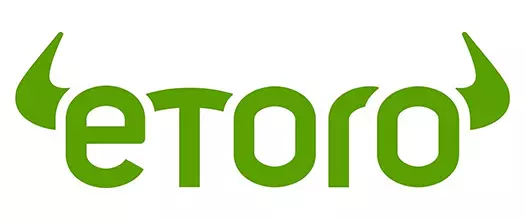The financial market in the United Kingdom provides favourable conditions for accessing stock and ETF trading and investment opportunities for both individuals and institutions. With a strong economy, stable regulatory environment, and highly developed financial infrastructure, the UK continues to be an appealing environment for equity investors. UK brokers provide a wide range of services, including online trading platforms, research tools, and investment advice, catering to the diverse needs of traders and investors.
 Plus500
Plus500 FxPro
FxPro Axi
Axi IG
IG ActivTrades
ActivTrades eToro
eToroBelow you can find more information about the trading platforms for Stock and ETF investing in the UK:
- Plus500, an FCA-approved broker, provides exposure to the stock markets through contracts for difference (CFDs), quoting prices for hundreds of shares from Europe and the US. Further exposure is possible via exchange-traded funds (ETFs).
- FxPro, an FCA-licensed broker, enables traders to gain exposure to the stock market without purchasing the underlying shares. The broker provides pricing on more than 1,800 shares from Europe and the US.
- Axi, another FCA-regulated broker, offers more than 100 stocks, available for commission-free trading with competitive spreads. Customers receive dividend adjustments where applicable and may use leverage of up to 1:5 with retail accounts.
- IG, an FCA-authorised broker, accommodates both short-term speculators and long-term investors by offering CFD trading and direct investing in thousands of shares—more than 11,000, to be precise. The investment account enables commission-free investing in shares and exchange-traded funds.
- ActivTrades, a broker under FCA supervision, offers more than 1,000 shares, tradable with narrow spreads and no hidden fees. Customers can filter the portfolio by country and access leverage of up to 1:5.
- At eToro, a brokerage compliant with FCA standards, UK clients can speculate on stock price movements with CFDs or purchase and hold stocks without paying any commissions or custody fees. Generating passive income through stock lending is also possible at eToro. Stock CFDs carry spreads from 0.15% of the trade’s value.
With the rise of online trading, UK-friendly brokers have adapted to the changing landscape, offering user-friendly platforms, mobile trading apps, and competitive pricing. Whether you are a seasoned investor or a beginner, UK brokers provide a convenient and secure way to trade and invest in stocks and ETFs. In this article, we will explore the best brokers in the UK, their services, and the key considerations for trading and investing in stocks and ETFs.
Stock Trading and Stock Brokers Explained
Stock trading involves buying and selling shares of publicly traded companies with the aim of making a profit from price fluctuations. Brokers play a crucial role in facilitating stock trading, acting as intermediaries between buyers and sellers. They provide trading platforms, execute trades, and offer various services, such as research, analysis, and investment advice.
In the UK, stockbrokers are regulated by the Financial Conduct Authority (FCA), ensuring that they operate in a transparent and secure manner. Stockbrokers can be categorised into two main types: full-service and discount brokers. Full-service brokers include traditional brokerage companies, which offer a wide range of services, including investment advice, research, and portfolio management, while discount brokers focus on executing trades at competitive prices.
Discount brokers, also known as execution-only brokers, usually charge lower fees, as they offer a more limited number of services to stock traders. The so-called neobrokers can often be categorised as discount brokers as they tend to reduce trading costs by charging tighter spreads and commissions while still offering a decent range of trading products.
UK traders can also utilise neobrokers to trade stocks or ETFs, with this new generation of online brokerage firms leveraging cutting-edge technology to provide low-cost, user-friendly, and accessible trading platforms for individual investors.
Concept of ETF Trading Explained
ETF (exchange-traded fund) trading involves buying and selling funds that are listed on stock exchanges, just like individual shares. ETFs are designed to track the performance of a specific index, sector, or asset class, providing investors with instant diversification and flexibility.
ETFs allow UK investors to gain exposure to a wide range of assets, including UK and global stocks, bonds, commodities, and thematic markets such as clean energy or technology, all through a single trade. Many brokers in the UK offer access to hundreds of ETFs, including those tracking major indices such as the FTSE 100, FTSE 250, S&P 500, and MSCI World.
Most UK brokers, including platforms like Hargreaves Lansdown, AJ Bell, Trading 212, and Freetrade, offer ETF trading with research tools, tax-efficient accounts such as ISAs and SIPPs, and commission-free options in some cases.
Differences Between Stock Trading and Stock Investing
Stock trading and stock investing are two distinct approaches to participating in the stock market. UK residents can legally engage in both, with many online brokerages catering to both traders and investors, meeting the goals of different individuals. Stock trading involves buying and selling stocks frequently, with the aim of making short-term profits from price fluctuations.
Many UK-friendly brokers offer the option to open investment accounts to buy, sell, and hold stocks for long-term profit. Meanwhile, there are also brokers that allow CFD (contract for difference) trading, which involves speculating on the price movement of an underlying asset without actually owning it.
On the other hand, CFDs are derivative products that allow you to speculate on the price movement of a stock without owning the underlying shares. A CFD is a contract between you and the broker under which you agree to exchange the difference in the value of the stock between the time you open and close the position.
Here is a table summarising the differences between trading stocks with an investment account and derivative stock trading with CFDs.
| Feature | Investment Account | CFDs on Stocks |
| Ownership | You own the actual shares. | You do not own the underlying shares. |
| Leverage | No leverage (1:1) | Leverage available (capped at 1:5 for retail traders) |
| Dividends | You receive dividends | No dividends, but possible dividend adjustment |
| Voting Rights | You have voting rights as a shareholder. | No voting rights |
| Expiration Date | No expiration date | Rolling expiration date (e.g. daily, weekly) |
| Risk | Market risk, company-specific risk | Market risk, company-specific risk, leverage risk, margin call risk, counterparty risk |
| Fees | Commission fee, custody fee | Spread fee, overnight financing fee, commissions upon opening and closing positions |
| Trading Style | Long-term investing, buy-and-hold | Short-term trading, speculation |
| Regulation | Regulated by the FCA (Financial Conduct Authority) | Regulated by the FCA, with additional rules for CFDs |
| Taxation | Taxed as capital gains; dividend taxes may also apply. | Taxed as capital gains; professional traders are liable for income taxes as well. |
Does ETF Trading Share Similarities with Stock Trading?
Despite their differences, stock and ETF trading share several similarities. One of the most notable aspects they share is the ability to trade on margin, allowing investors to leverage their investments and potentially amplify their returns. Both stock and ETF traders can also use various trading strategies, such as technical, fundamental, and market-sentiment analysis, to make informed investment decisions.
Another similarity between stock and ETF trading is the importance of risk management. Both types of traders need to be aware of the potential risks associated with their investments, such as market volatility, liquidity risks, and economic downturns. To mitigate these risks, traders can use various risk-management tools, such as stop-loss orders, limit orders, and diversification strategies.
In addition, both stock and ETF traders can benefit from the use of trading platforms and online brokerages. These platforms provide access to real-time market data, trading tools, and educational resources, making it easier for traders to stay informed and make more adequate investment decisions.
Finally, both stock and ETF trading involve the concept of liquidity, which refers to the ability to buy or sell an asset quickly and at a fair price. Traders need to be aware of the liquidity of the assets they are trading, as it can impact their ability to enter or exit positions promptly and at a good price.
Characteristics of Stocks Worth Trading
When trading stocks, many UK traders typically focus on companies listed on the London Stock Exchange (LSE) or international markets accessible through UK brokers. Stocks worth trading generally feature high liquidity, volatility, and consistent trading volumes, making them suitable for various strategies and goals.
UK traders often look for stocks with strong growth potential, reliable dividend payments, and stable financial performance. Popular choices include FTSE 100 giants such as HSBC, Unilever, and AstraZeneca—well-established companies with strong market positions. Many traders also follow the FTSE 100 index, which tracks the 100 largest UK-listed companies by market capitalisation.
Other important characteristics to consider include sector trends, competitive advantages, and innovative business models. Most UK brokers provide research tools, market analysis, and trading insights to help investors identify suitable stocks. Platforms like Hargreaves Lansdown and AJ Bell offer such resources alongside tax-efficient accounts such as ISAs.
Fees and Costs of Stock and ETF Trading
UK residents who trade stocks and ETFs with FCA-licensed brokers can expect to pay various fees and trading charges, regardless of whether they trade with an investment account or speculate with CFDs on stocks. Some of the common fees and charges include:
- Commissions: These range from 0.1% to 1.0% of the trade value in pounds sterling, depending on the broker and the type of account. This equates to between £1 and £10 on a £1,000 trade.
- Trading fees: These can include fees for buying and selling stocks and ETFs, as well as fees for trading on margin.
- Custody fees: These are charged by the broker for holding and managing the trader’s securities.
- Management fees: These are fees charged by the broker for managing the trader’s portfolio.
- Spread fees: These are charged by the broker for the difference between the buy and sell price of a security.
Additionally, UK traders may also pay other charges such as:
- Account maintenance fees: Brokers may charge these for ongoing account administration and platform access.
- Inactivity fees: Some platforms impose charges if an account remains dormant for a specified period.
- Withdrawal fees: Traders should check for potential costs when transferring funds out of their brokerage account.
It is worth noting that when trading stocks with an investment account, you typically do not incur spread fees, as you are buying and selling the underlying securities. However, you may still incur commissions, which are fees charged by the broker for executing the trade.
Commissions for trading stocks with an investment account can vary depending on the broker and the type of account. Some brokers charge a flat fee per trade, while others deduct a percentage of the trade value.
Risks of Trading Stocks and ETFs
Trading stocks and ETFs involves significant risks, including market risk, liquidity risk, and trading costs. Market risks arise from price fluctuations, economic changes, and geopolitical events, which can impact the value of stocks and ETFs.
Liquidity risk occurs when traders are unable to buy or sell securities quickly enough or at a fair price, resulting in losses. Trading costs, such as commissions and spreads, can also erode your trading profits. Additionally, traders may face other risks, such as leverage risks, margin calls, and account closures.
The majority of UK brokers offer risk-management tools, such as stop-loss orders and position sizing, to help traders mitigate these risks. It is essential for traders to carefully assess their risk tolerance, goals, and market conditions before trading or investing in stocks and ETFs.
How to Choose a Broker for Stock and ETF Trading?
When choosing a stock and ETF broker, UK traders should consider several key criteria. First, they should look for a broker that is regulated by the Financial Conduct Authority (FCA) to ensure that their investments are protected. They should also consider the broker’s fees and commissions, as well as the range of trading products and services offered.
A user-friendly trading platform and mobile app are essential for convenient and flexible trading. Additionally, British traders should evaluate the broker’s customer support, research tools, and educational resources to help them make informed investment decisions. The broker’s reputation, security, and stability are also crucial factors to consider.
We also advise UK traders to check whether the broker offers a demo account, allowing them to test the platform and trading conditions before opening a live account. By carefully evaluating these criteria, traders from the country can choose a reliable and suitable broker that meets their trading needs and goals.
FAQ
What is the minimum amount required to open a trading account with a UK broker?
The minimum amount varies depending on the broker and the account type, but it can be as low as £100 or even less.
Are there any taxes on profits resulting from stock investing in the UK?
UK investors should note that profits realised within tax-efficient wrappers such as ISAs and SIPPs are completely exempt from Capital Gains Tax (CGT), making these accounts highly advantageous for long-term investing. Outside these wrappers, CGT applies to gains exceeding £3,000 (for the 2024/25 tax year), with rates at 18% for basic-rate taxpayers and 24% for higher-rate taxpayers as of April 2025. This distinction between tax treatment within and outside ISAs/SIPPs is a critical consideration for UK investors. Additionally, stock and ETF trading via spread betting accounts can offer further tax advantages, as gains are free from Stamp Duty and Capital Gains Tax.
Are profits from stock CFD trading taxable in the UK?
Profits from stock CFD trading are taxable in the UK as capital gains, provided they exceed the tax-free allowance of £3,000. Gains above this threshold are taxed at 10% or 20% based on the taxpayer’s band. Losses can offset future gains. Unlike physical stocks, CFDs are not liable for Stamp Duty, and ISA accounts are unavailable for them. It is worth mentioning that frequent traders classified as professionals are subject to income taxes ranging from 20% to 45%.
Can UK residents use leverage when trading stocks and ETFs?
Many UK-friendly brokers offer leverage for trading CFDs on stocks and ETFs, but it is essential to understand the risks and regulations associated with leveraged trading. The maximum ratios are capped at 1:5 to protect retail traders from taking excessive risk.
How can UK traders protect themselves from trading risks and losses?
UK traders can protect themselves by setting stop-loss orders, diversifying their portfolios, and using risk-management tools, as well as educating themselves on trading strategies and market analysis.